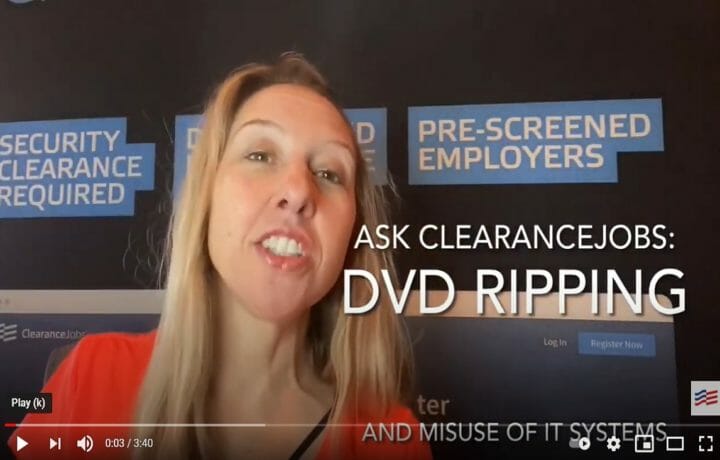Security clearance policies may stay largely the same over decades, but the way violations occur can change dramatically. Someone recently queried the ClearanceJobs news site about DVD ripping. And while you might be thinking the 1990s called and asked to get its security clearance violations back, the era of DVD ripping – and its consequences – aren’t in the too far distant past.
You’ll recall Chelsea Manning’s Wikileaks dump began with a Lady Gaga burnt CD. While today’s kids have the world of music streaming from their devices, for prior generations it wasn’t uncommon to rip a DVD or CD to trade your favorite music with a friend. The Manning leaks created a quick ban on removable storage on workplace and particularly on classified devices.
Within a matter of a few years, DVD ripping became irrelevant not just due to changing IT policies, but also changing conventions on how media is consumed. With the era of digital streaming, few people are ripping DVDs these days. But that doesn’t mean that security clearance concerns caused by media are over – it’s just that the nature of the violations has changed.
A decade ago, it wasn’t unheard of to hear of a security clearance denial or revocation that referenced a file sharing site like Napster. Many of the questions, particularly during a polygraph examination, focused on the dollar amount of media stolen – if your library was full of hundreds of lifted movies, the dollar amount of the theft could easily reach thousands of dollars. For a guilty grabber undergoing a polygraph examination, in particular, all of that stolen media could mean a security clearance denial or revocation.
Misuse of IT Systems is one of the adjudicative criteria used to establish eligibility to access classified information. When it comes to file sharing or DVD ripping, the pertinent bullet is: “introduction, removal, or duplication of hardware, firmware, software, or media to or from any information technology system without authorization, when prohibited by rules, procedures, guidelines or regulations.” So, yes your prior DVD habit could pose a security clearance problem. One factor that should be in the favor of most affected applicants, however, is passage of time: almost any issue, and particularly one of file sharing, can be mitigated with passage of time. As long as you’re not still copying your favorite Lady Gaga tunes and sharing them with a friend, you’re probably fine.




